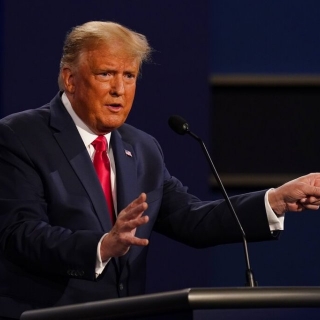


US President Donald Trump has confirmed that he will impose 25% tariffs on imports from Canada and Mexico, effective February 1. It remains to be seen whether crude oil, a significant import from these countries, will be included in the tariffs.
The tariffs are intended to address issues such as migration, fentanyl trafficking and trade imbalances. However, Nigel Green, CEO of deVere Group, a global financial advisory and asset management firm, warned that the move carries significant risks for investors worldwide.
The US imports around 40% of its crude oil, mainly from Canada. If oil is hit with tariffs, it could impact energy markets, leading to higher costs for businesses and consumers. This could potentially push inflation higher and hurt economic growth. Green suggested that energy markets, already fragile due to global supply constraints, could face unnecessary volatility, making fuel and transportation more expensive globally.
The tariff announcement also fuels uncertainty about trade policy, leading to potential market volatility. With Canada and Mexico planning to retaliate, global markets are bracing for potential turbulence. Investors with exposure to North American equities, currencies and sectors that rely on supply chains may need to reassess their positions. Green suggests investors consider diversifying their portfolios to protect themselves from increased volatility and potential trade disruptions. This can be achieved by increasing exposure to defensive sectors such as healthcare, utilities and consumer staples, as well as exploring alternative assets such as gold and real estate.
Certain industries are expected to feel the impact of these tariffs more than others. Manufacturing, automotive and consumer goods sectors that rely on cross-border supply chains could face higher costs, potentially impacting profitability. Agriculture could also be hurt if retaliatory tariffs target U.S. exports. Conversely, domestic energy producers, certain U.S.-based manufacturers and industries supported by protectionist policies could see short-term gains due to reduced competition. (AL)
Source: Investing.com
US President Donald Trump said Washington is willing to provide security assistance to Ukraine as part of a deal to end the war with Russia. He emphasized that security support is a crucial factor in ...
President Donald Trump has threatened to impose an additional 5% tariff on imports from Mexico if the country does not immediately release water supplies that the U.S. government says are due under a ...
President Donald Trump announced an $11 billion aid package for American farmers, particularly soybean farmers, who have been hit by the trade war and falling crop prices. Tariffs against many countri...
US President Donald Trump expressed disappointment with Ukrainian President Volodymyr Zelenskiy's response to Washington's peace proposal to end the war with Russia. According to Trump, Kyiv hasn't mo...
President Donald Trump announced a new peace pact between Rwanda and the Democratic Republic of Congo, which he linked to US access to critical minerals. At a meeting in Washington, Trump claimed his ...
European stocks closed lower on Tuesday, with the STOXX 50 down 0.5% and the broader STOXX 600 slipping 0.4%, as optimism around Russia–Ukraine peace efforts prompted investors to reassess the outlook for military spending and weighed on defense...
Gold prices briefly strengthened after the release of US economic data, which sparked an initial market reaction. The data fueled speculation that economic pressures persisted, prompting investors to temporarily turn to gold as a safe haven. This...
Oil prices fell below $60 a barrel on Tuesday, the lowest since May, as prospects for a Russia-Ukraine peace deal appeared to strengthen, raising expectations sanctions could be eased. Brent crude futures fell $1.03, or around 1.7%, to $59.53 a...
 New York Federal Reserve President John Williams said on Monday the U.S. central bank's interest rate cut last week leaves it in a good position to...
New York Federal Reserve President John Williams said on Monday the U.S. central bank's interest rate cut last week leaves it in a good position to...
 Stocks rose Monday led by a broad array of names as traders bet data set for release this week will point to tame inflation and strong economic...
Stocks rose Monday led by a broad array of names as traders bet data set for release this week will point to tame inflation and strong economic...
 Asian markets opened lower in the last full trading week of 2025, fueled by concerns about the prospects for tech company profits and growing AI...
Asian markets opened lower in the last full trading week of 2025, fueled by concerns about the prospects for tech company profits and growing AI...
 Pasangan mata uang EUR/USD mengawali pekan ini dengan nada sedikit melemah di sesi Asia, diperdagangkan di sekitar 1,1730, turun kurang dari 0,10%...
Pasangan mata uang EUR/USD mengawali pekan ini dengan nada sedikit melemah di sesi Asia, diperdagangkan di sekitar 1,1730, turun kurang dari 0,10%...